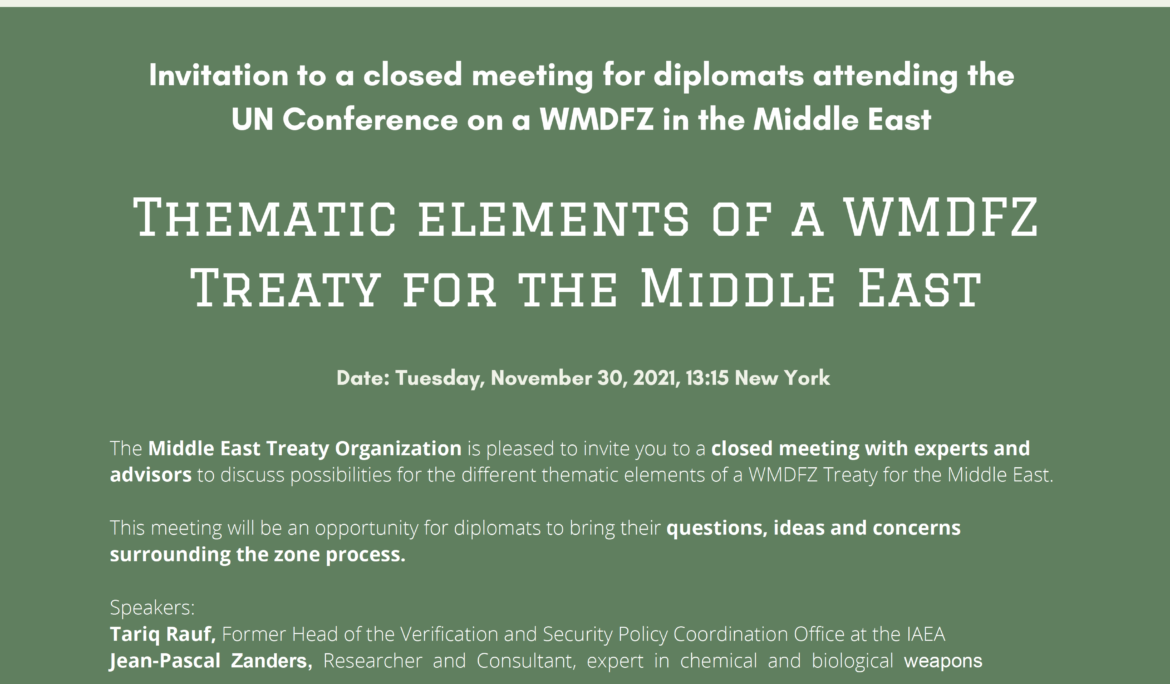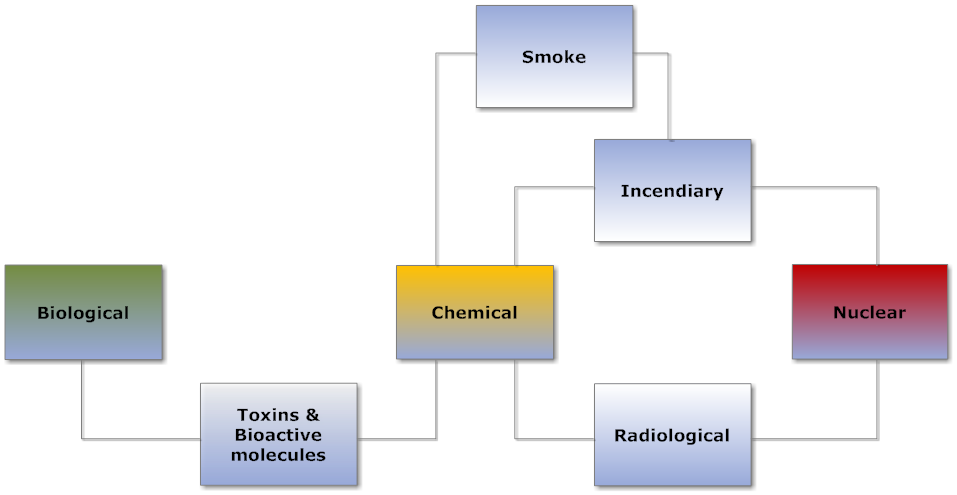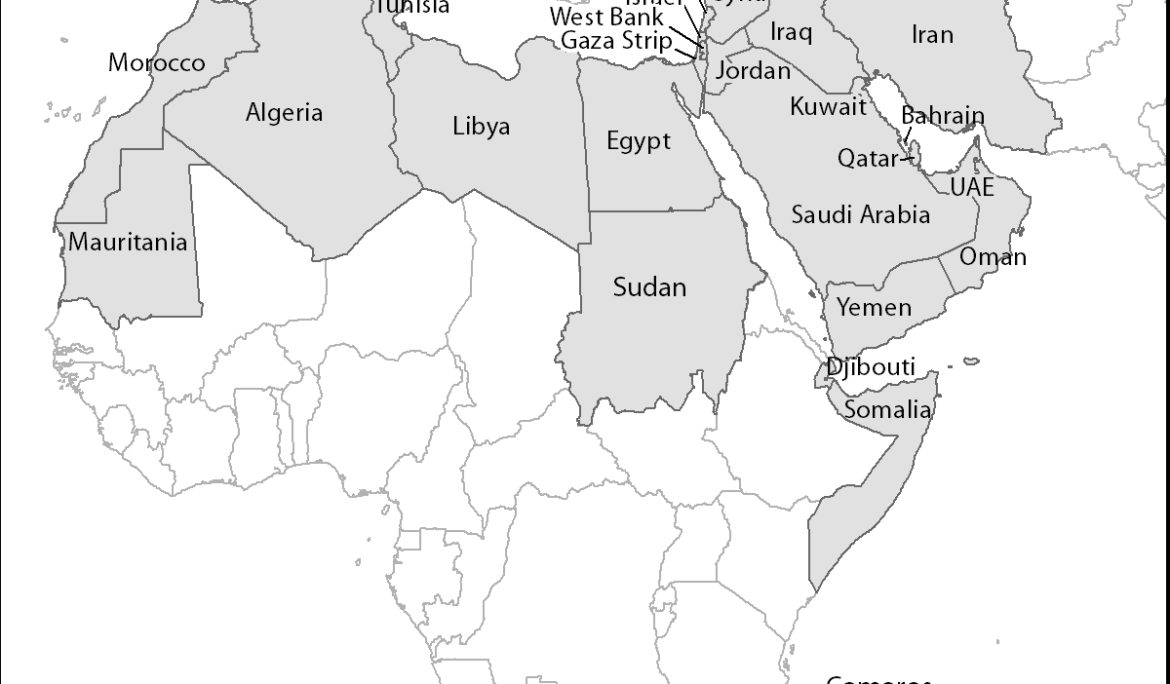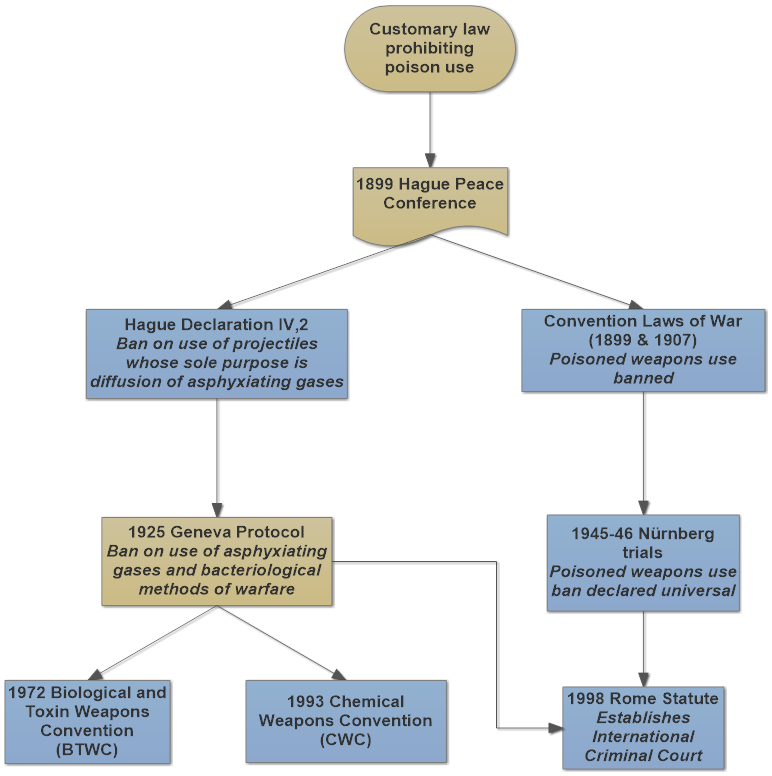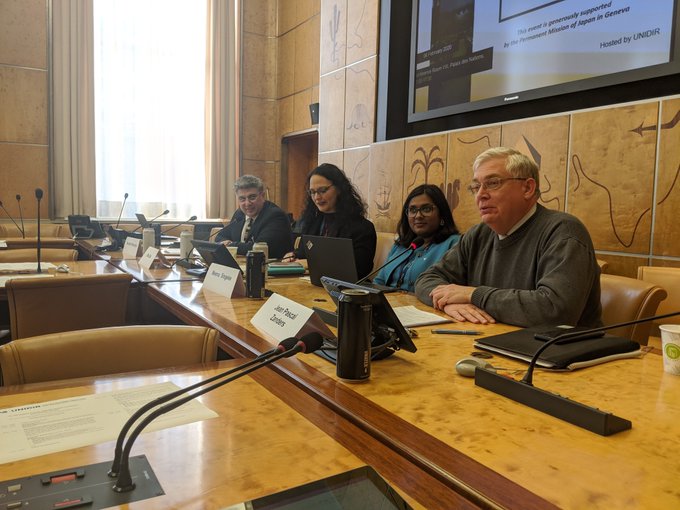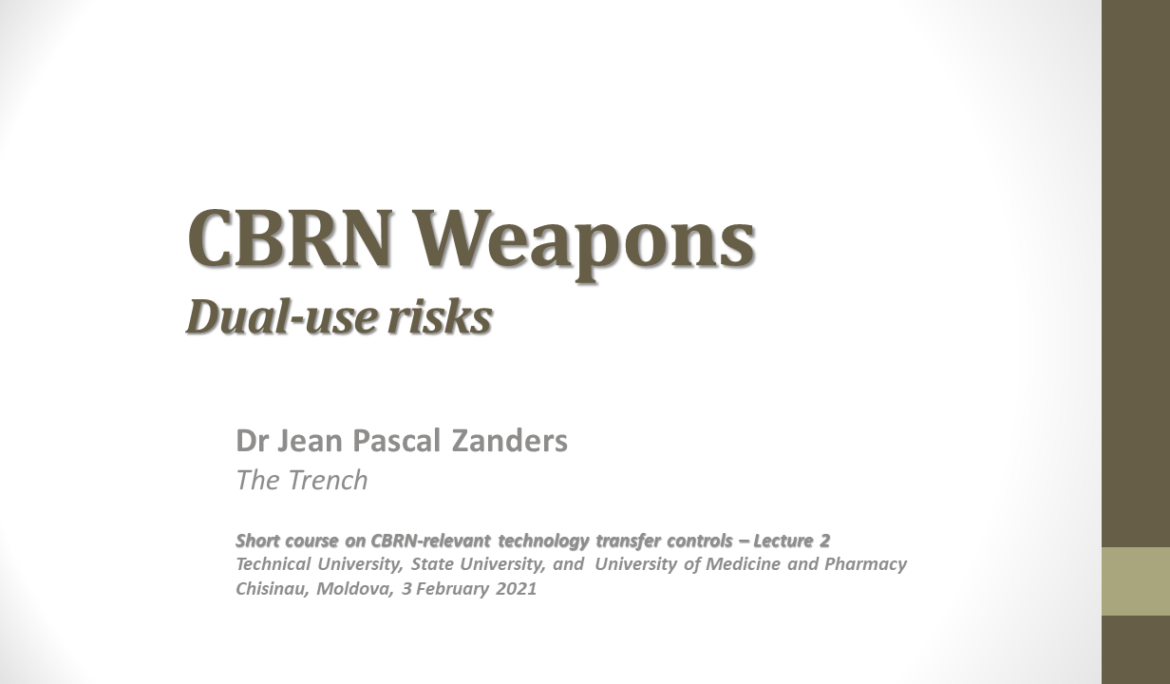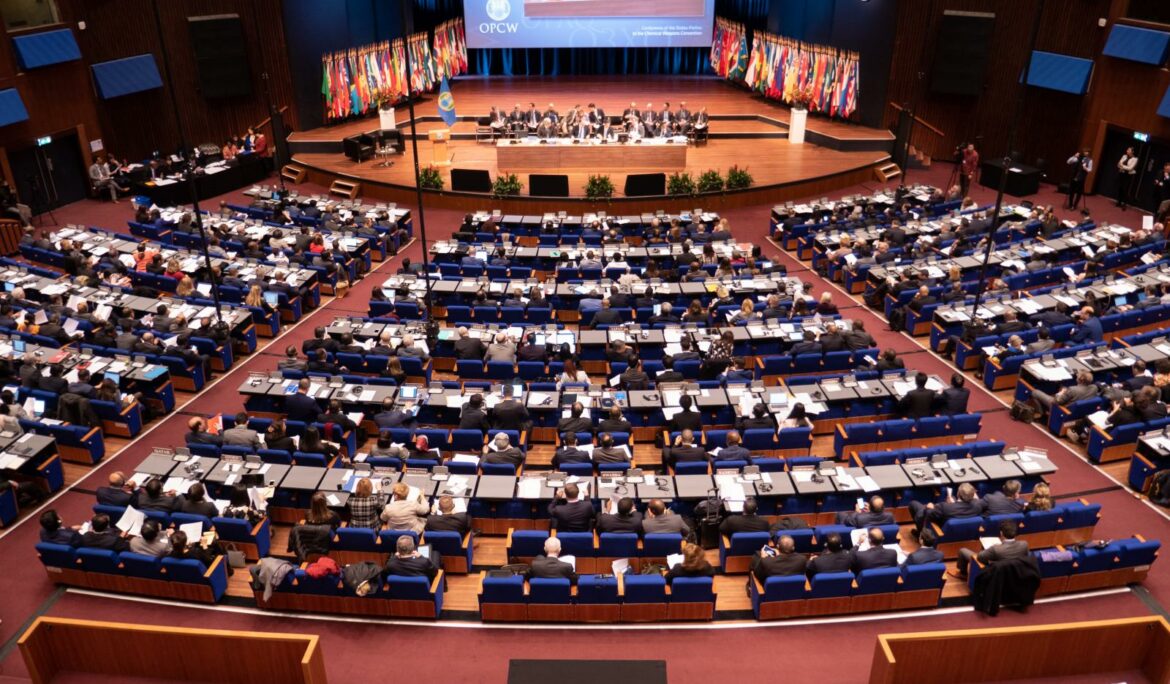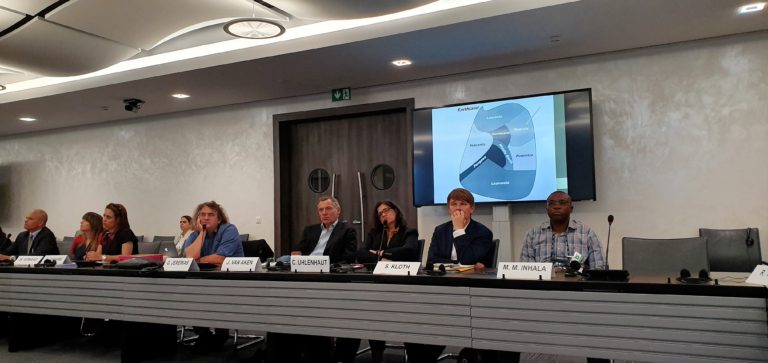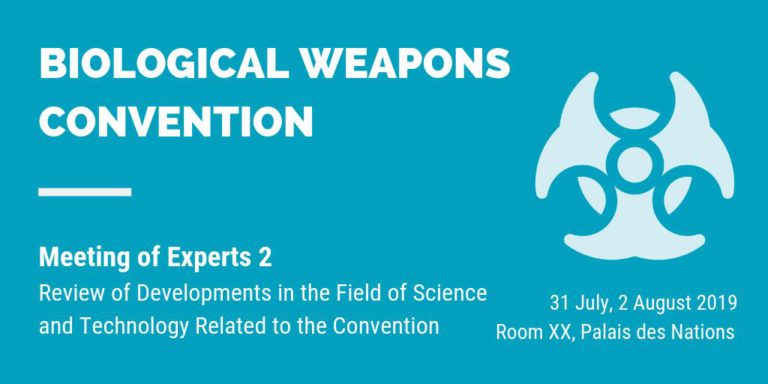Education for disarmament and non-proliferation
Building a culture of responsibility: education for disarmament and non-proliferation Journal of Strategic Trade Control, Special Issue, Vol. 2 (September 2024) I am honoured to have been invited to contribute to the Special Issue of the Journal of Strategic Trade Control (JoSTC) focussed on Training programs to counter current and emerging biological and chemical proliferation risks: themes, practices, and lessons learnt. Between January 2018 and December 2023, I was involved in the design, development and implementation of a master’s course on dual-use technology transfer control, which was implemented in Central Asia through the International Science and Technology Centre (ISTC) and …
Trying to picture a treaty for a Middle East Zone free of non-conventional weaponry
On 30 November, the Middle East Treaty Organisation (METO) – a coalition of civil society activists and practitioners – organised an informal virtual discussion round with Middle Eastern diplomats participating in the Second Session of the Conference on the Establishment of a Middle East Zone Free of Nuclear Weapons and Other Weapons of Mass Destruction under the auspices of the UN Office of Disarmament Affairs. That session should have taken place last year, but the COVID-19 pandemic forced postponement of in-person UN diplomatic gatherings. Last Tuesday’s informal discussion forms part of METO’s efforts to draft and promote a treaty for …
A Middle East Zone Free from Non-conventional Weapons (4)
Part 4: Clear legal definitions at the core of the future treaty This article is the fourth in a series of blog postings exploring the opportunities and challenges facing a new series of conferences at the United Nations in New York to eliminate non-conventional arms – essentially nuclear weapons, and to a lesser extent chemical and biological weapons (CBW) – from the military arsenals in the Middle East. Why legal definitions matter By adopting Decision 73/546 on 22 December 2018, the UN General Assembly tasked the newly established conference with ‘elaborating a legally binding treaty establishing a Middle East …
A Middle East Zone Free from Non-conventional Weapons (3)
Part 3: Defining the Middle East, a loaded question In November 2019 a conference at the United Nations in New York (report here) marked a fresh round of diplomatic efforts to eliminate non-conventional arms – essentially nuclear weapons, and to a lesser extent chemical and biological weapons (CBW) – from the military arsenals in the Middle East. As indicated in the second part of this series, participants in the new conference series depart from the definition of the Middle East used by the International Atomic Energy Agency (IAEA). At the UN Institute for Disarmament Research (UNIDIR) seminar ‘The Middle …
A Middle East Zone Free from Non-conventional Weapons (2)
Part 2: Treaties governing chemical and biological weapons In November 2019 a conference at the United Nations in New York marked a fresh round of diplomatic efforts to eliminate non-conventional arms – essentially nuclear weapons, and to a lesser extent chemical and biological weapons (CBW) – from the military arsenals in the Middle East. This article is the second in a series of blog postings exploring the opportunities and challenges to ensure that the regional risks of CBW threats and use – chemical weapons (CW) were and, as I am writing, are part of conflicts in the Middle East …
A Middle East Zone Free from Non-conventional Weapons (1)
Part 1: A new process to disarm the Middle East In November 2019 a conference at the United Nations in New York marked a fresh round of diplomatic efforts to eliminate non-conventional arms – essentially nuclear weapons, and to a lesser extent chemical and biological weapons (CBW) – from the military arsenals in the Middle East. The previous initiative died in 2015 as the review conference (RevCon) of the 1968 Nuclear Non-Proliferation Treaty (NPT) failed to agree on a consensus document. The new series of annual meetings takes place outside the NPT RevCon cycle, which consists of a quinquennial …
Education on CBRN-relevant dual-use technology transfers in Moldova
The Science and Technology Centre in Ukraine (STCU) just published a summary of the short virtual course on CBRN-relevant dual-use technology transfers I taught in Moldova on 2 – 5 February. The course was another step in the project to design, develop and teach a full master’s course on export controls and technology governance for the GUAM countries (Georgia, Ukraine, Azerbaijan, and Moldova). As I described in a previous blog post, the educational initiative forms part of a larger Targeted Initiative funded by the European Commission that is implemented through the STCU and International Science and technology Centre (ISTC) in …
COVID-19 interferes with CWC and BTWC meeting schedules
COVID-19 is messing up the diplomatic disarmament and arms control agendas. On 27 March Ambassador Gustavo Zlauvinen from Argentina announced as President-Designate the postponement of the 10th Review Conference of the Nuclear Non-Proliferation Treaty (NPT). Initially scheduled for 27 April – 22 May 2020, it was to take place by April 2021. The deadline was moved up to August. However, because of the United Nation’s original schedule of meetings for 2021 combined with the many rescheduled meetings of this year, the only possible opening in the agenda was an impractical slot from 4 to 29 January. The pandemic’s resurgence in …
Third tabletop exercise on emergency assistance in case of biological weapon use – First impressions
The day after the presentation of the report on the Article VII tabletop exercise (TTX) held in Lomé, Togo on 29 and 30 May to the states parties of the Biological and Toxin Weapons Convention (BTWC), the Fondation pour la recherche stratégique (FRS) and the BTWC Implementation Support Unit (ISU) ran another TTX in the United Nations building in Geneva. This time the focus was on a series of anthrax outbreaks that affected mostly herd animals, but also led to multiple human casualties. The scenario was a deliberate attempt to break with the habitual simulations of increasingly dire human pandemics. After all, the BTWC covers …
Blog 2 – Experiences of a student at the Meetings of Experts of the Biological and Toxin Weapons Convention
This second blog post covers both the second and third Meetings of Experts (MXs) of the Biological and Toxin Weapons Convention (BTWC). MX2 on science and technology took place on 31 July and 2 August (the day in between being the Swiss national day); MX3 on strengthening national implementation of the BTWC was a one-day event on 5 August. MX2 impressions Like at the start of the week I was still sitting behind The Trench nameplate, which was formally represented for the first time in these five MXs of 2019. MX2 was chaired by Mr Yury Nikolaichik of Belarus who decided to …


